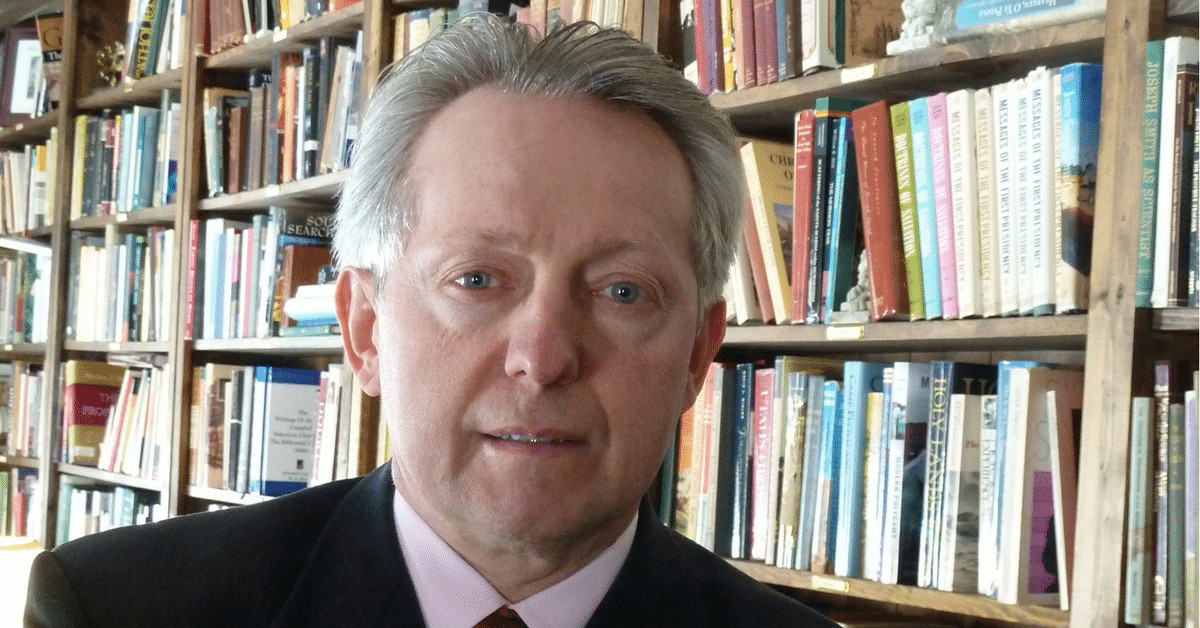Podcast: Play in new window | Download | Embed
Subscribe Apple Podcasts | Spotify | Android | Blubrry | Email | RSS | More
This is a rebroadcast. The episode originally ran in January 2018. Terryl L. Givens, PhD, did graduate work in Intellectual History at Cornell and studied Comparative Literature at UNC Chapel Hill. He taught courses in Romanticism, nineteenth century cultural studies, and the Bible and Literature and was the Jabez A. Bostwick Professor of English at the University of Richmond. Currently, he is a Neal L. Maxwell Senior Fellow at Brigham Young University. He has published in literary theory, British and European Romanticism, Mormon studies, and intellectual history. Terryl has authored or edited 20+ books, and some of his favorites include his collaborations with his wife, Fiona. Together they are the authors of The God Who Weeps, The Crucible of Doubt, The Christ Who Heals, and All Things New. Baptized initially in the Presbyterian faith by his minister grandfather, Terryl and his family joined the Church of Jesus Christ of Latter-day Saints when Terryl was eight or nine. He served as a missionary in Brazil and has served as a bishop. Whether hosting insightful podcasts for Faith Matters or speaking to saints the world over at intimate firesides, Terryl’s mission is to help everyone–no matter where they are in their journey of faith–come closer to Jesus Christ.
Highlights
4:30 Terryl’s background and work experience. 6:20 Religious background and faith development. 10:20 How Terryl met his wife, Fiona. The early years of marriage and having kids. 13:45 Terryl’s unlikely journey to becoming an author and his father’s collection of 19th-century anti-LDS literature. The impact of learning The Book of Mormon was the most widely-produced book, other than the Bible 16:50 Books are no longer the primary vehicle for disseminating information. Terryl’s podcast is about his desire to celebrate intellectual and theological richness of Mormonism. 19:20 There is not one typical Mormon testimony; finding one’s own path in coming to Christ. 20:30 Called as bishop in Richmond the week of 9/11. 21:30 Advice Terryl received when he got called as bishop.
- As a bishop, you occupy a position with enormous ability to make a difference in people’s lives.
- Be aware of the power of the mantle you wear.
- One small look or gesture can completely change someone’s Sabbath experience.
22:45 Terryl and his counselors focused on personal interaction as a bishopric.
- No one left the chapel without encountering the bishop or one of the counselors.
- They made visits to everyone in the ward in the first year.
- He made appointments with every single young person.
24:30 Dealing with faith and emotional crises.Terryl didn’t always know how to help people but the number one thing he learned to do as a bishop was to be empathetic. Stop trying to fix it. Just listen and validate them. 30:00 Helping people with difficult faith questions. Listen to the questions people have without interjecting yourself with your own faith position. Terryl shares personal experiences he has had helping people with faith crises. 35:15 As a leader, have the courage to refer someone to a person with more expertise. Be careful about trying to shut off sources of intellectual inquiry. 38:00 Many in the church criminalize doubt. Elder Hugh B. Brown says, “We all have to serve an apprenticeship in doubt on the way to discipleship.” Doubt is a phase on the way to finding something richer. However, people shouldn’t stay in that attitude of doubt. 39:35 Faithful trust instead of certain knowledge. Believe vs know. 44:15 Scriptural examples of individuals having faith without absolute knowledge. It’s ok to say I don’t know. 46:35 Asking genuine questions in adult Sunday school classes. The importance of truly-spiritual gospel doctrine class teachers. 50:30 Is there resistance to addressing questions head-on? In the long run, how will church members be fortified? Terryl shares his experience about being “shut down” in the U.K. when he was teaching. 53:00 What is holy envy? Terryl says that his holy envy is of faiths that see the role of art and literature as sacred vehicles. President Kimball said, “When God didn’t have prophets he spoke through poets.” 55:30 The essence of discipleship is the recognition that we are all wounded and hurting in some way. There is no one whose life can’t be made better by a shared concern. Nearly everyone carries some type of burden.
Links
TerrylGivens.com Books authored by Terryl The Sin of Certainty: Why God Desires Our Trust More Than Our “Correct” Beliefs Men are From Mars Women are From Venus Read the TRANSCRIPT of this podcast Listen on YouTube Get 14-day access to the Core Leader Library










Thank you for highlighting this interview again; this Throwback episode, as you called it, is needed now more than ever. I heard helpful tips that I will apply in so many ways, with so many people. I especially loved Bro. Givens’ suggestion to “question the question”! Quite similar to Elder Uchtdorf’s “Doubt your doubts…” but with a direct and immediate application!